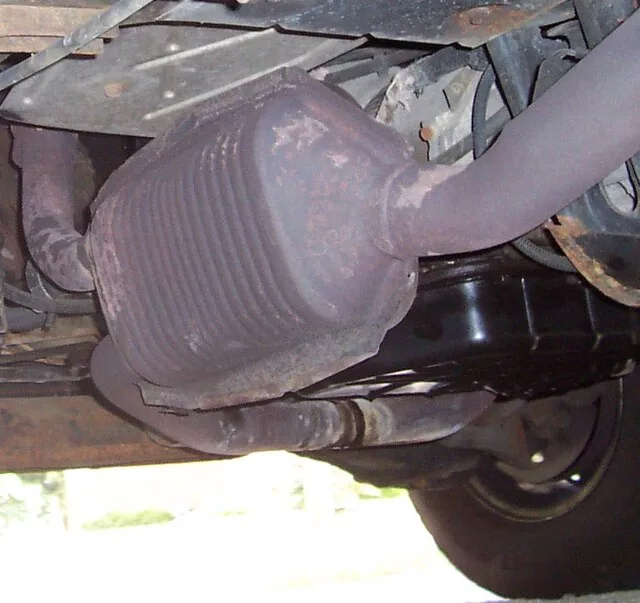
With the rise in catalytic converter thefts, which cost victims tens of thousands of dollars alone, a new Texas law has been implemented that would increase the penalties for catalytic converter theft.
According to the Universal Technical Institute, “A catalytic converter uses a chamber called a catalyst to change the harmful compounds from an engine’s emissions into safe gases, like steam. It works to split up the unsafe molecules in the gases that a car produces before they get released into the air.”
Catalytic converters are prized because they are made out of valuable materials Rhodium ($12,300), Palladium ($1,784), and Platinum ($940). The National Insurance Crime Bureau notes that there has been a sharp rise in catalytic converter thefts from right before the Covid-19 pandemic, to today.
The law was pushed in response to a Harris County Sheriff’s Deputy, Darren Almendarez, who was shot and killed while trying to prevent three men from stealing his catalytic converter. Thus, the law is called the Deputy Darren Almendarez Act.
The law increases the penalties for catalytic converter theft which can fall anywhere between a misdemeanor and a felony depending on the cost of damages that have occurred. An article by KHOU breaks it down like this, “Depending on the amount of loss caused by the theft, under the bill, catalytic converter theft may be a Class C, B or A misdemeanor (loss of $100 to $2,500); a state jail felony (loss of more than $2,500 but less than $30,000); or a third-degree, second-degree or first-degree felony (loss of $30,000 to $300,000 or more).”
It also allows police officers to ask people they stop where they got their catalytic converter or catalytic converters from if the person is seen to be in possession of one.